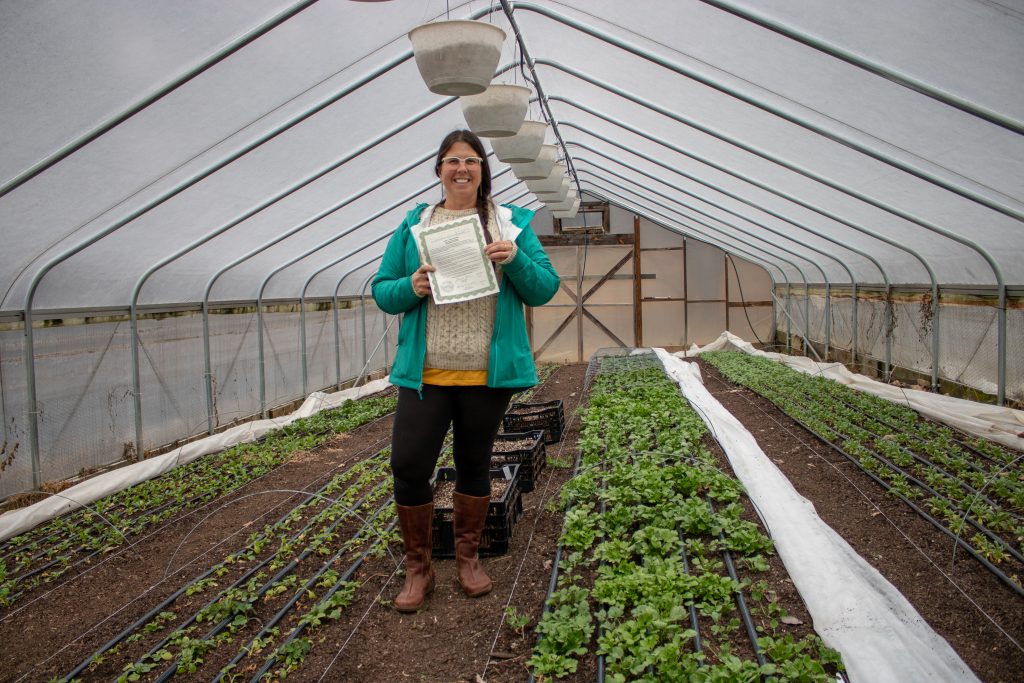
Christmas came early this week when our farm received its official paperwork for Certified Naturally Grown flowers! I was giddy to get my hands on that Certificate! I’m really delighted to have completed the rigorous certification process for Certified Naturally Grown flowers, joining a thriving community of small farms and apiaries dedicated to growing with Nature, rather than fighting and controlling it.
And – to the best of my knowledge – this makes us the only full-service wedding florist in the country able to offer 100% Certified Naturally Grown flowers for a truly sustainable wedding! Woot woot!!
So what is Certified Naturally Grown? Certified Naturally Grown provides a much-needed complement to the National Organic Program (NOP) run through the United States Department of Agriculture (USDA). While the NOP is an important program that primarily serves medium and large-scale agricultural operations, Certified Naturally Grown is instead tailored for direct-market farmers producing food and flowers for their own local communities. Our flower farm has been using organic growing practices from the very start, never relying on synthetic chemicals and other inputs to grow our beautiful blooms. However, we did not pursue becoming Certified Organic through the USDA since the process was just too costly and too bureaucratic to be worthwhile for Love ‘n Fresh Flowers.
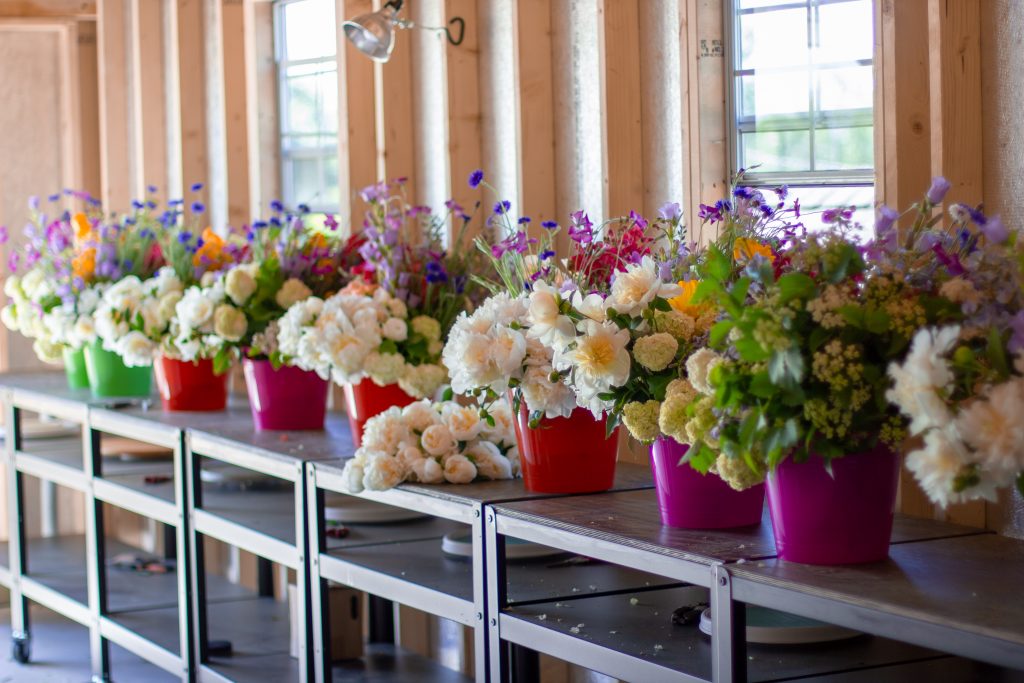
In addition to that, on a personal level, I’ve lost quite a bit of respect for the Certified Organic designation over the past decade as it has been used to green wash many far-less-than-sustianable practices used by “Big Ag” industrial farming. It’s one thing to not spray chemicals, but it’s another entirely to adopt holistic practices such as planting hedgerows for wildlife habitat, maintaining a diverse farm ecosystem, selling your crops locally rather than shipping across the country, committing to water conservation, keeping a close eye on energy consumption, and treating farm workers well, including paying a livable wage. Industrial monoculture farming is not sustainable, no matter how many of the “words” you can put on the label. So, in my mind and heart, getting Certified Organic wasn’t good enough.
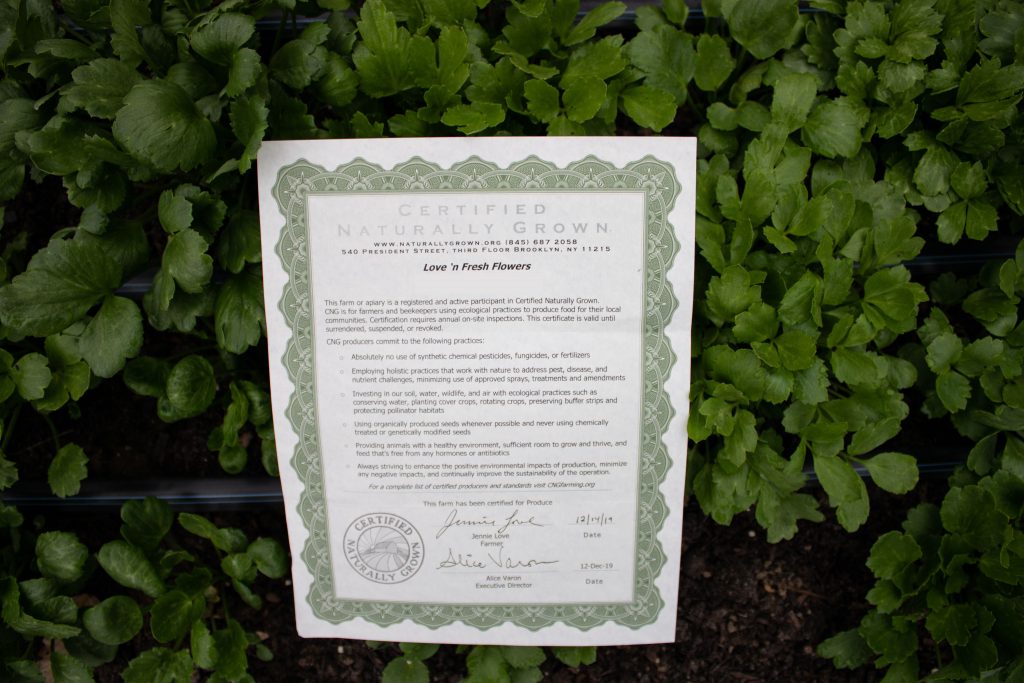
This past summer, when I learned about Certified Naturally Grown, a grassroots movement started in 2002 by small farmers to hold each other accountable to a much higher standard of sustainability on all levels, I knew I’d found my tribe and that getting this certification would mean a lot to me. I wanted to verify that all the practices I’d adopted at our farm were truly in line with Nature. Going entirely no-till in the fields and hoop houses this year was a huge step forward and has been the catalyst for cracking wide-open so many assumptions I had about farming. Through the detailed certification process for Certified Naturally Grown, I learned even more. I now firmly believe small, sustainable, and thoughtful farming can save our planet. (More on that topic sometime this winter when I’ve had enough time to collect my thoughts into a comprehensive essay.)
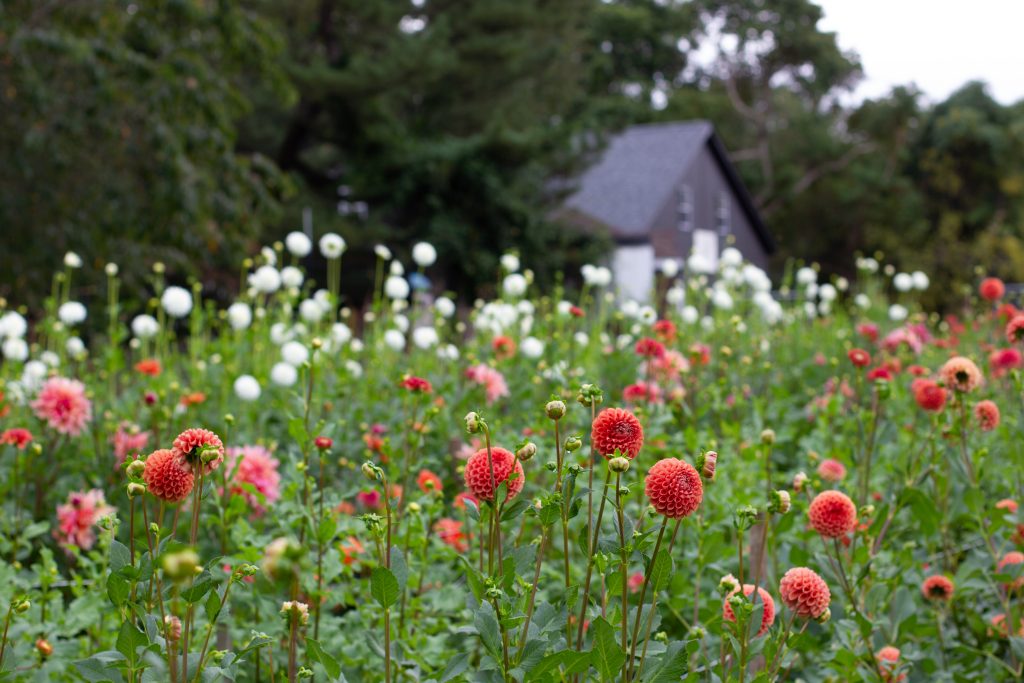
Here are the practices we have always been committed to here at Love ‘n Fresh, but are now verified through our Certified Naturally Grown flowers designation:
- Committing to absolutely no use of synthetic chemical pesticides, fungicides, or fertilizers. Ever.
- Employing holistic practices that work with nature to address pest, disease, and nutrient challenges, minimizing use of even approved sprays, treatments and amendments in an effort to always grow with the least amount of human interference.
- Investing in our soil, water, wildlife, and air with ecological practices such as conserving water, planting cover crops rotating crops, preserving hedgerow buffer strips for wildlife, and protecting pollinator habitats.
- Using organically produced seeds whenever possible and never using chemically treated or genetically modified seeds.
- Providing animals with a healthy environment and sufficient room to grow and thrive.
- Striving to enhance the positive environmental impacts of production and minimize any negative impacts, and continually improving the sustainability of the entire farm operation.
One of the things I liked most about the certification process for Certified Naturally Grown was that I was asked to come up with and declare new initiatives for the coming growing season to make my farm even more sustainable. So, for the 2020 season, I will work hard to get solar panels installed on the new barn to power our floral coolers and install a water catchment system on the barn as well to collect rainwater for irrigation. I’m so excited for the coming growing season! I can feel the farm coming alive in a whole new way!!
Now go find a Certified Naturally Grown farm near you and support them!
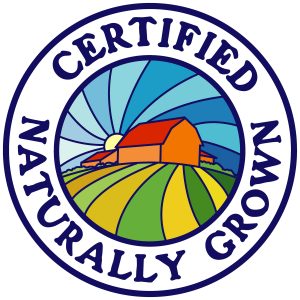

Jennie, bravo! This is very exciting.
Thanks, Sue!!!
That is such a HUGE accomplishment! Super happy for you!!! Congratulations!
Thanks so much Alison!!
Do you grow lisianthus? Is their pellet coating considered a chemical treatment? I am also applying for CNG.
We do grow lisianthus. Certain pelleted seed is not allowed while others are. You have to check with your seed supplier to confirm what is in the coating and make sure it meets CNG standards. If it is simply a clay coating that makes it easier to sow tiny seeds, that’s fine. If it has a chemical/seed primer in the coating, then that is not allowed. I’m still learning about all the ins and outs of CNG so you’ll want to work with them directly on this question too, but that’s my best shot at explaining the differences of pelleted seed. 🙂
💖That’s amazing Jennie and very very inspiring 👍🏼👍🏼
Thanks, Annie! 🙂
Congratulations. I hope you will be able to cover more on your best practices in your online school this spring, which I plan to take.
Thanks, Sheila! I won’t be covering many specifics about growing practices in the upcoming online course. That course will be focused on the business of weddings. But stay tuned for more blog posts in the future about regenerative growing practices. Have you checked out the no-till tulips post yet or the no-till flower growing post?
https://lovenfreshflowers.com/2019/11/05/no-till-tulip-planting/
https://lovenfreshflowers.com/2019/05/30/no-till-flower-farming/
I’m a couple years late, but congratulations!